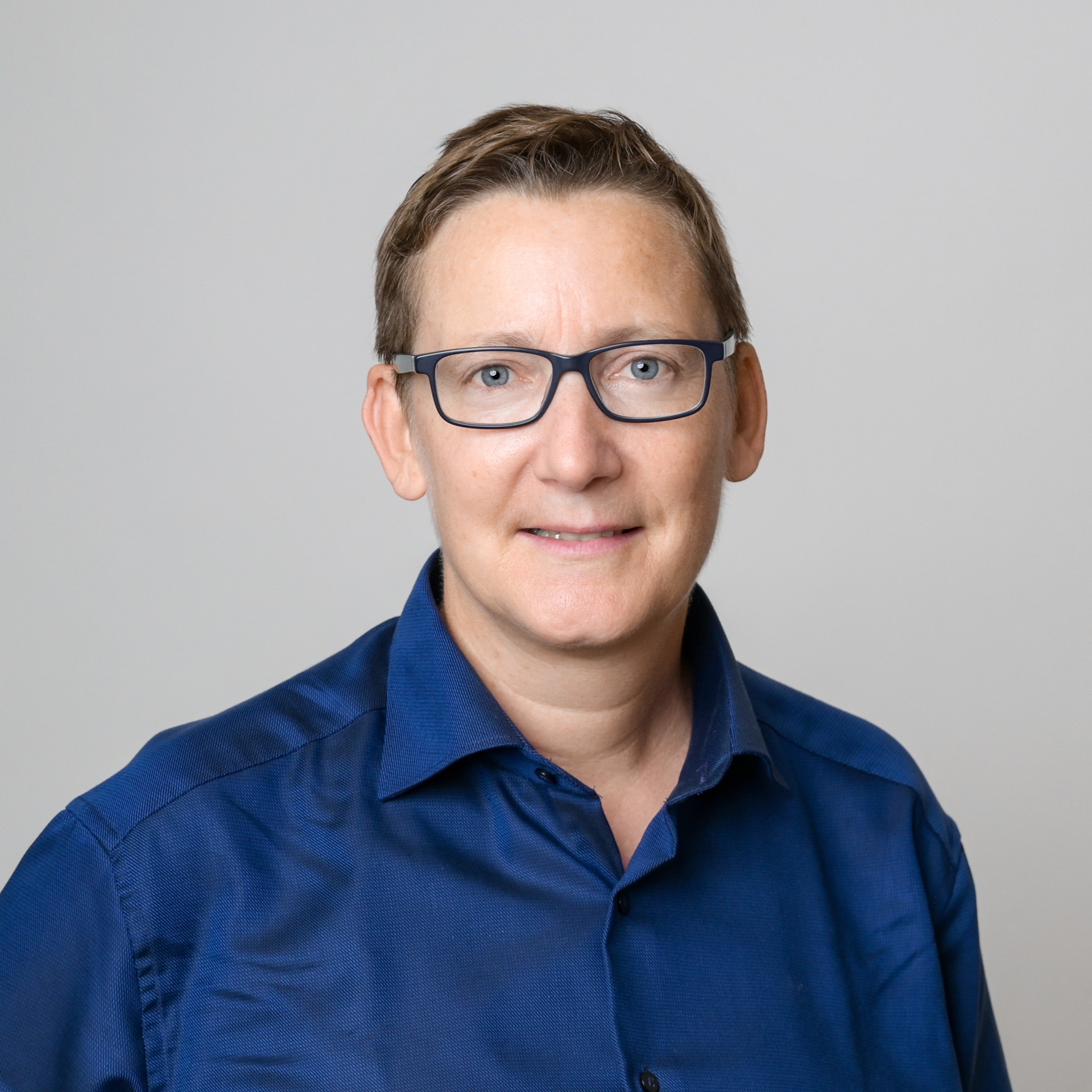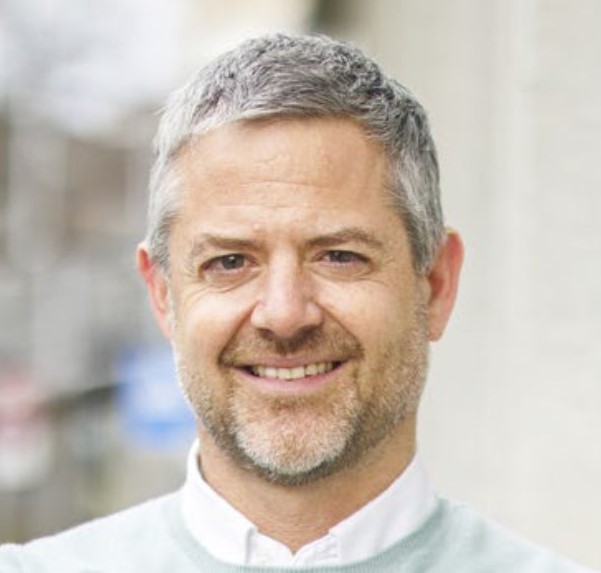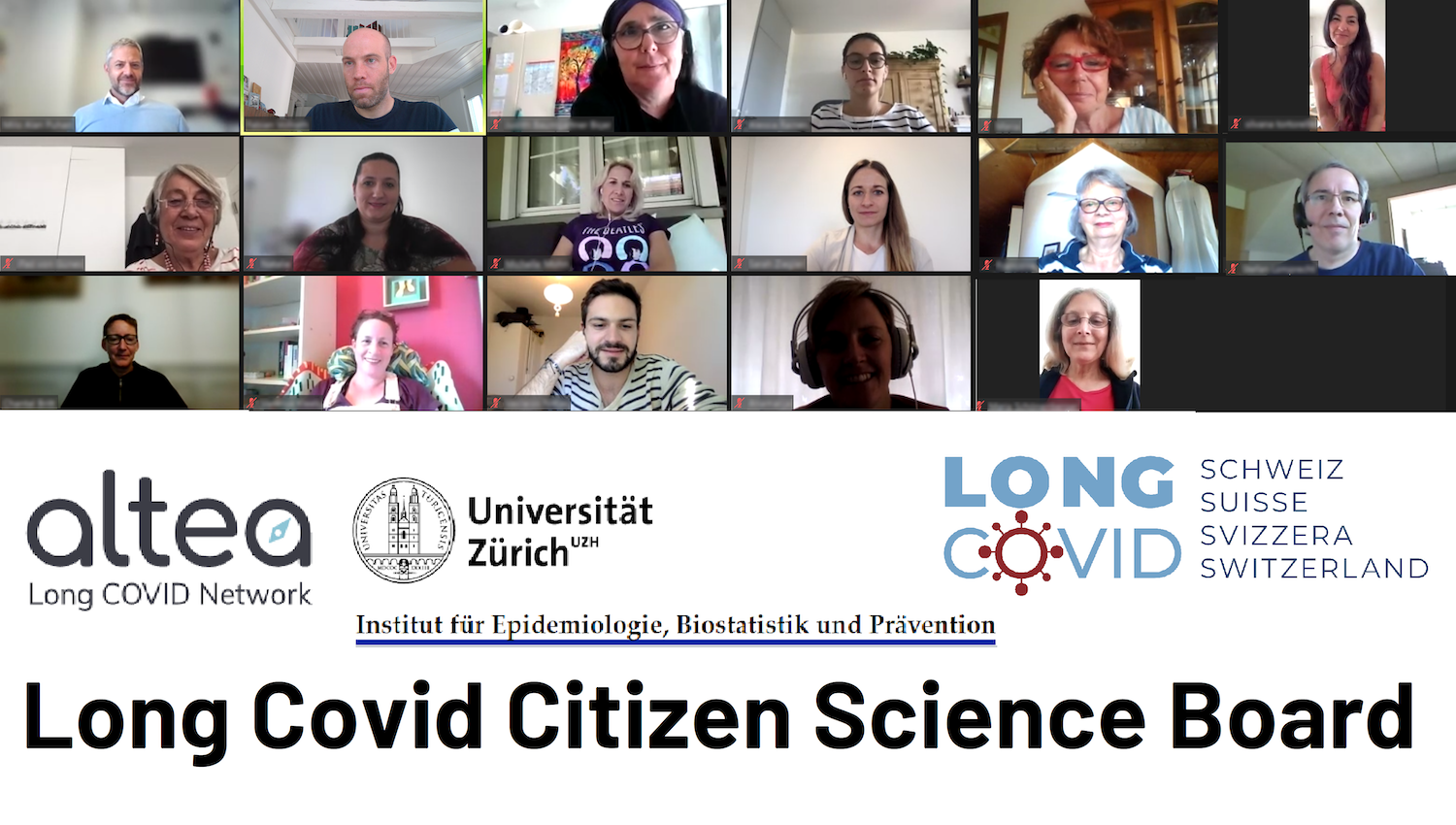Research with and for people affected
The Seed Grant project "Long Covid Citizen Science Board" involved people with Long Covid directly in the research. They participated in discussions, exchanged ideas and assessed how research could better meet their needs. A board and a working group were formed for this purpose. We spoke to Chantal Britt and Milo Puhan about the project and shed light on it from two perspectives - that of a citizen scientist affected by Long Covid, and that of an academic researcher.
Author: Ursina Roffler
The interview was conducted in writing and in German.
Together with Covid came also Long Covid. Studies have shown that around one in five adults can experience persistent symptoms for months after their first infection with the coronavirus.1 People with Long Covid have various health issues and doctors often do not know what their patients need most urgently. This is where the project came in.
Ursina Roffler: Ms. Britt, Mr. Puhan, can you briefly explain to us what exactly the "Long Covid Citizen Science Board" project was about? How did the project idea come about? And what was your respective role in the project?
Chantal Britt: The project was about researchers and patients working together to identify the most relevant topics and research priorities of those affected. The idea arose when we discussed that it would be helpful to develop a method to systematically capture the needs of patients with a newer disease. This would make it possible to start researching and investing in the crucial topics in order to answer the important and right questions. Post-infectious diseases have been poorly researched to date, which is why priorities need to be set. For the citizen scientists, it was about empowerment, we wanted to make a difference, have an impact and improve our situation. I was co-applicant and officially the representative of those affected in the project team. In a way, I always wore two hats and mediated between the patients and the researchers.
Milo Puhan: In most cases, research priorities are determined exclusively by experts, sometimes with at least one representative of those affected. In our project, it was particularly important that the research priorities were determined entirely by those affected.
How did the collaboration within the 30-citizen board work, but also between scientific researchers and the citizen scientists? In your opinion, what worked well and where were there stumbling blocks?
Chantal Britt: The collaboration worked very well, considering the situation. The 30-citizen board consisted of chronically ill people with Long Covid and/or myalgic encephalomyelitis ME/CFS. The exchange was very appreciative and at eye level. The meetings all took place online, so the board members had never met in person. We carried out the project, the meetings were respectful and were rated positively by those affected, and we published the results. However, there are many challenges with Citizen Science. The multilingualism, the jargon, the limitations due to the illness, but also the lack of competencies and skills when it comes to scientific work and processes. The citizen scientists worked without pay, sick, in their free time, sometimes lying in bed at home. Communication is a challenge and the divergences when it comes to interests, motivation, goals, expectations of the project and the team.
Milo Puhan: I can only agree with this description. Chantal Britt, Sarah Ziegler, who coordinated a substantial part of the project, and I tried very hard not to overwhelm those involved with the scope of the work and speed of the process. And we chose formats for the online discussions where all participants could contribute, so that the discussions and determination of research priorities were not dominated by a few.
The involvement of patients in medical research, also known as Patient and Public Involvement (PPI), has become increasingly important in Switzerland. What are your views on this type of research?
Chantal Britt: As a PPI expert and patient representative, I have a certain bias. I am convinced that the involvement of those affected improves the quality of research, care, relevance and impact. PPI also has the potential to reduce inequalities in the system through the empowerment of patients, relatives and the public. In my view, publicly funded research and decisions on research funding should always be carried out with the participation of those affected themselves.
Milo Puhan: I agree one hundred percent with Chantal. We have had a flagship project in this regard since 2016 with the Swiss Multiple Sclerosis Register. This major project was requested by people with MS, they are shaping it together with us researchers and the Swiss MS Society and are actively involved in publications and outreach activities.
What were the results of the project and what did you learn?
Chantal Britt: We have developed a method that can be used to systematically record the needs of patients. I learned a lot about research, its processes and challenges, that the motivations of researchers and citizen scientists are very often different, that communication is extremely important, but also that Citizen Science can make a difference.
Milo Puhan: We were able to develop very specific research priorities and publish them in a good journal (The Patient). We have certainly all learned a lot in the development of the method and about the nature of constructive collaboration.
What was done with the findings? How and to whom did you communicate the results?
Chantal Britt: We have published the study and I quote the results whenever I am asked what the priorities of those affected would be if they were to receive funding.
Milo Puhan: I also try to incorporate these research priorities wherever possible.
Do you think that science and politics take sufficient account of the interests of Long Covid affected people and the demands drawn up in the project?
Chantal Britt: No. Unfortunately, the needs of those affected were hardly taken into account at all in the two existing National Research Programmes (NRPs) on acute illness and social issues. A research program for post-infectious diseases is needed. We would have defined the priorities for this with the project, but there is a lack of political and scientific will to finally tackle the issue of post-infectious diseases.
Milo Puhan: Unfortunately, we have no evidence to date that our research priorities have been followed. However, the article is being cited more and more frequently and we will probably only be able to assess which research was at least partly influenced by our research priorities in a few years' time.
A major challenge with Citizen Science projects is often the question of what happens after the funding periode. How did you solve this? Does the project continue in any way?
Chantal Britt: The board continues to exist. Individual participants have already been contacted and consulted for research projects. There is therefore a perspective for those involved. However, as described above, there is unfortunately a lack of research funding to initiate further projects. Our dream would be to have some projects that are truly patient-led, patient-initiated. In other words, that some of the questions we have identified are actually answered in projects that are carried out jointly by those affected and researchers.
Milo Puhan: I am very pleased that those affected are available to work on other projects. For example, they provided important input for our current therapy study on Pycnogenol, which we are conducting at the Institute of Epidemiology, Biostatistics and Prevention. However, in contrast to countries such as the USA and England, there is a lack of research funding, as Chantal says.
What do you personally take away from the project?
Chantal Britt: A lot of satisfaction, empowerment and courage for new things. Through the project, I went from being a communications specialist to a patient advocate through my illness, and finally to a researcher through the project. My illness turned my life upside down, and the project was a ray of hope that led my professional life in a completely new direction - something I could never have imagined before.
Milo Puhan: While I have some experience of working with those affected in research projects, I found it very exciting to develop a methodology for identifying research priorities from a perspective of those affected and am more convinced than ever that patients need to be involved in all stages of research.
Thank you very much for the interview.

About Chantal Britt: After more than 20 years in journalism and science communication, Chantal Britt has been working as a patient representative since March 2020 and has been a research assistant at the Competence Center for Participatory Healthcare at Bern University of Applied Sciences since September 2022.

About Milo Puhan: Prof. Milo Puhan studied medicine at the University of Zurich and has been Professor and Director at the Institute of Epidemiology, Biostatistics and Prevention at the University of Zurich since 2013. His main research interest are in prevention and management of chronic diseases and in the development of tools to support preference-sensitive health care.
1 Long COVID Citizen Scientists: Developing a Needs-Based Research Agenda by Persons Affected by Long COVID https://link.springer.com/article/10.1007/s40271-022-00579-7



